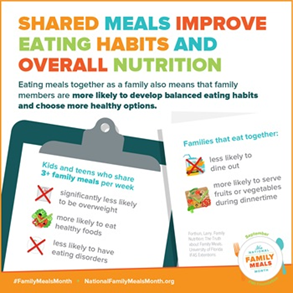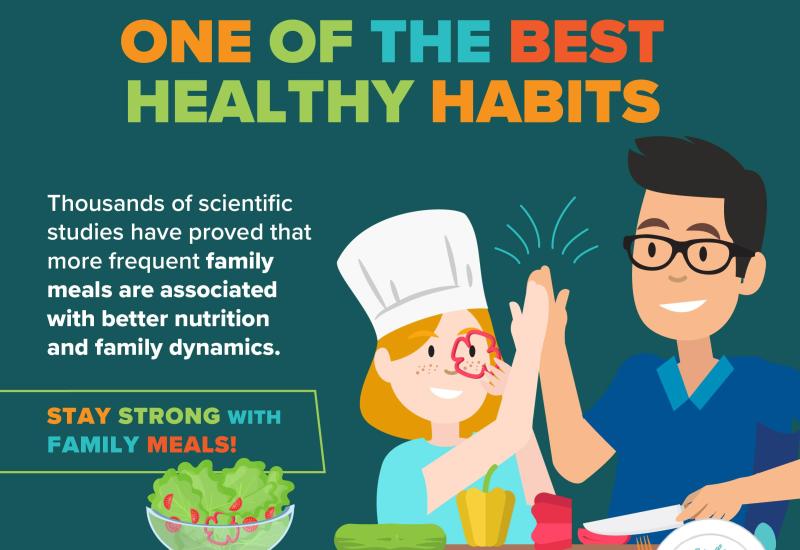Family Meals Improve Child and Teen Nutrition
 (NewsUSA)
(NewsUSA) - Getting the family together for meals is not always easy, but an increasing body of scientific evidence supports the benefits of family mealtimes and the value in making them a priority. Families who share more meals together eat more healthfully, regardless of children’s age, socioeconomic status, or level of education, according to the FMI Foundation. The FMI Foundation is a nonprofit organization that supports research, education, and resources in the area of health and well-being, including food safety, nutrition, and social responsibility.
- Getting the family together for meals is not always easy, but an increasing body of scientific evidence supports the benefits of family mealtimes and the value in making them a priority. Families who share more meals together eat more healthfully, regardless of children’s age, socioeconomic status, or level of education, according to the FMI Foundation. The FMI Foundation is a nonprofit organization that supports research, education, and resources in the area of health and well-being, including food safety, nutrition, and social responsibility.
Benefits of family meals include positive relationships with favorable mealtime behaviors, increased intake of better-for-you foods, reduced consumption of sugary beverages, and better overall nutritional health, studies show.
- An in-depth analysis of multiple studies showed positive associations between children’s nutritional health and five mealtime factors:
- no TV on during meals
- parents’ setting a good example of healthy eating behaviors
- higher food quality, positive atmosphere
- children's involvement in meal preparation
- longer meal duration.
- Family meals have a positive effect on the nutritional health of older as well as younger children. Another study including nearly 2,000 children and adolescents up to age 17 years showed younger children who participated in more than five family meals each week drank significantly fewer sugar-sweetened beverages, while older children and teens ate more fruits and vegetables than those who participated less frequently in family mealtimes.
- In a 2023 a randomized, clinical trial, a design that delivers the highest level of evidence in clinical practice, was conducted among children aged 6 to 11 years. The findings showed that increasing the length of family mealtimes by 10 minutes significantly increased the amounts of fruits and vegetables eaten. These results support data from a separate 2018 study in which preschoolers who participated in fewer than three evening family meals per week ate significantly fewer fruits and vegetables than preschoolers who participated in family evening meals each night.
The increasing recognition of the many benefits of family meals has prompted the creation of the Family Meals Movement—a year-round celebration of the many benefits of family meals as supported by research studies. The movement is an extension of National Family Meals Month™, celebrated each September. Learn more at www.FamilyMealsMovement.org.











